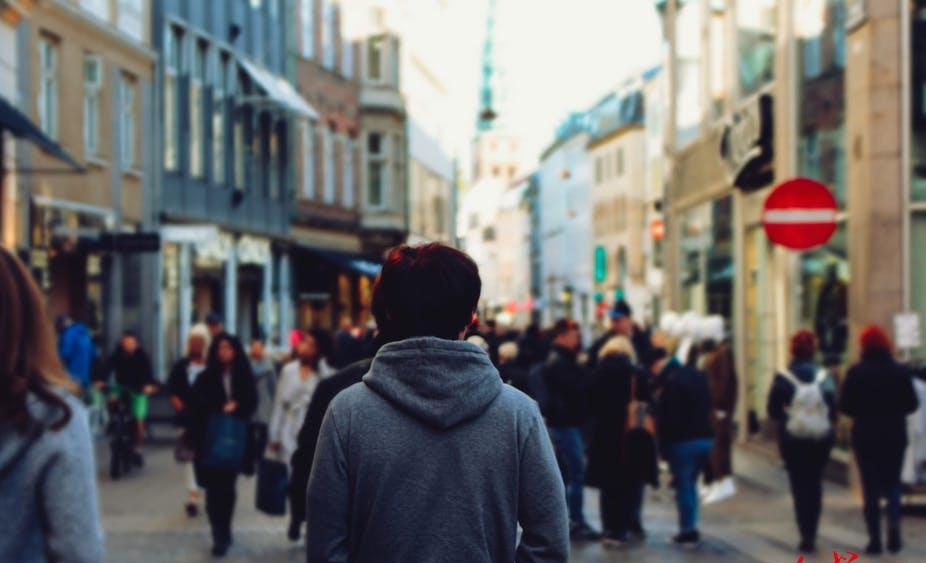Since the beginning of the pandemic, the loneliness of urban dwellers has become one of the social problems that cannot be ignored. According to foreign media reports, if no action is taken, loneliness will become a more common public health problem by 2030. Compared to air pollution, obesity and alcoholism, loneliness has a 45% risk of death.
Recently, British researchers have assessed for the first time how the environment affects people's loneliness. Studies have shown that overcrowded environments increase loneliness by an average of 39 percent. Contact with nature can significantly reduce loneliness. In the natural environment, individual loneliness can be reduced by an average of 28%. According to the study, due to the increasing population of the city, the design of future urban spaces will have to weigh the emotional needs of residents and the relationship between the environment.

Nearly half of Britons say they feel lonely
45% risk of death from loneliness
Loneliness will be even worse in 2030
Loneliness is often associated with higher rates of depression, anxiety, and suicide. Not only that, according to a previous study in the United States, loneliness also has potential risks to physical health. "Loneliness significantly increases the risk of premature death, can lead to a 29 percent increase in heart disease risk, a 32 percent increase in stroke risk, and so on." Lunstad, a professor of psychology and neuroscience at BRIG Young University, said.
According to research published in the journal Scientific Reports on December 20 by British researchers, loneliness is a serious mental health problem that increases the risk of death by 45%. In contrast, air pollution, obesity and excessive alcohol consumption increased the risk of death by 6%, 23% and 37%, respectively.
In the UK, around 45% of people reportedly said they felt lonely, and 5% of them felt severely lonely. Research by U.S. health care company Cigna shows that loneliness in the U.S. soared 7 percent between 2018 and 2019, meaning that 61 percent of U.S. adults say they are lonely.
Researchers worry that things could get worse today. "The coronavirus is making more people feel lonely, and those who are already feeling lonely will feel even stronger." Harvard psychologist Richard Westfield said. According to him, social isolation and epidemic-related anxiety, sadness, etc., and loneliness fuel each other. Unless action is taken, loneliness could become a more serious public health problem in 2030.
▲ In a crowded environment, people's sense of loneliness will be enhanced
Natural experience reduces loneliness by 28%
Urban environmental health is a matter of public health
Despite the increasing level of social connection, "together loneliness" has become one of the hidden pains of modern society. The issue of loneliness in cities has long been a concern of the academic community. But much of the research on loneliness is based on questionnaires that explore how prevalent loneliness is and how it affects individuals' physical and mental health. Little is known about how urban life affects people's experience of loneliness. Recently, British mental health research experts joined forces with experts in the field of architecture and urban landscape to use the smartphone app "Urban Mind" to explore the dynamic influence of the urban environment on emotions.
The study used the Ecological Transient Assessment Method (EMA) to illustrate that people experience varying degrees of loneliness throughout the day, depending on their surroundings. 756 participants from the UK, US, Australia and Europe filled in real-time environmental and emotional assessment data on "Urban Mind" between April 2018 and March 2020. Data analyzed the association between loneliness and social and environmental factors (overcrowding, population density, social inclusion, and contact with nature).
The results showed an average 38% increase in loneliness in overcrowded environments. When participants were in urban environments with natural features such as plants and birds, loneliness decreased by an average of 28 percent. In addition, the study suggests that green and blue spaces in cities may promote the mental health of residents, giving them a stronger sense of trust and belonging.
"People have long realized that exposure to the natural environment can promote human interaction and connection. And this study further demonstrates people's affinity for the natural environment and the potential benefits of nature for social well-being. Christopher Gildlow, professor of applied health studies at Staffordshire University in the UK, said.
Professor Andrea Macchelik, a member of the research team and an interventionist for psychological problems at King's College London in the UK, said cities are not always bad for mental health and that "in some ways, such as the natural landscapes and social inclusion in cities, can actually reduce loneliness." He pointed out that densely populated cities should increase the social inclusiveness of space and the chance of natural contact (such as increasing parks, rivers, etc.) to help residents reduce loneliness.
In the UK, forest walks are expected to reduce the cost of mental health treatment by £185 million a year
Landscape architect Johanna Gibbons, a member of the research team, said that the urban living population will continue to increase, and natural space is a very important part of urban design. "Urban environmental health and public health are actually the same thing." Social architecture and urban landscape artist Michael Smyth said. In the UK, forest walks are reportedly used to relieve psychological problems, which is estimated to reduce the cost of mental health treatment by at least £185 million per year.
Red Star News reporter Wang Yalin intern reporter Ding Wen
edit
(Download Red Star News, there are prizes for the newspaper!) )